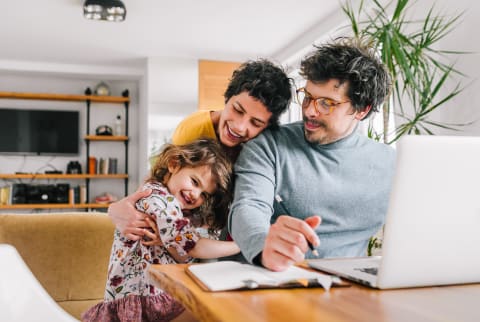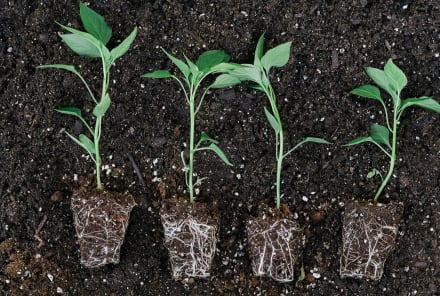Advertisement
Moving Away From Climate Anxiety: How To Create A Family Eco-Action Plan


"Why don't you get it? You can't wait for my generation to clean up your climate mess," exclaimed my 14-year-old daughter.
Her younger sister nodded emphatically, both of them pointing to the recent International Panel on Climate Change report that concluded we have about 10 years before we reach the point of no return.
Even with 20 years of experience in environmental advocacy under my belt, it was an intense conversation for me. And when I started asking other parents of teens, I quickly realized they were having similar ones with their kids.
Gen-Z'ers are reminding us that it's high time to take action.
From basing decisions on where to go to college on the potential for climate-induced wildfires and floods to a general fear that the planet won't be habitable soon, my daughters and many of their peers suffer from "eco-anxiety," which the American Psychological Association now defines as "the fear of chronic environmental doom."
It's not just them and Swedish activist Greta Thunberg: A growing number of young people are feeling it. Generation Z kids, born after 1997, consider climate change the biggest threat to the world, according to a 2019 Amnesty International survey, and a Washington Post poll found that 1 in 4 Gen-Z'ers have taken action on climate.
For good reason. In 2020, we've seen more than 17 million acres burn in Australia; so many Atlantic hurricanes that we've run out of names and are using the Greek alphabet; temperatures of 100 degrees Fahrenheit in the Arctic Circle; and destructive wildfires in California, Oregon, and Colorado that brought day-glow orange skies.
And scientists warn that these may be the "good ole days," because climate change is only accelerating.
How to create a family eco-action plan.
So what do we and our kids do while we're waiting for comprehensive climate action from industry and world governments? We act.
Bret Jenks, president of the conservation nonprofit RARE recently told the Atlantic that "[i]f 5% of Americans bought carbon offsets or changed other [carbon-intensive] behaviors, that would add up to a reduction of 600 million tons of carbon dioxide a year." That shift would be "one of the top changes in terms of greenhouse-gas emissions in human history." Individual action can create a foundation for culture change to shift policy. Taking action can also help reduce anxiety.
So, with that in mind, I decided to channel my family's eco-anxiety into an eco-action plan. Here's how I went about it, in case you want to try something similar:
Research.
Think about how you are feeling about the state of the environment, and then research the issues you are most concerned about. I recommend Project Drawdown, the Sierra Club, and the Sunrise Movement for climate action suggestions.
Write down your eco-actions.
Decide your top issues and write down one eco-action you want to start with. I care deeply about policy, so I pledged to support federal candidates through Give Green. My older daughter chose clean energy and committed to supporting the Green New Deal. Her sister discovered that expanding the education of girls in developing countries is an important climate solution and decided to support the Malala Fund. My husband doubled down on his professional work in wildlife conservation.
Monitor how you feel as you act.
I felt good volunteering for campaigns and supporting candidates that reflect my values on climate. My older daughter shared information about clean energy and signed online petitions. She said it reduced her eco-anxiety. My younger daughter was proud of her efforts, too, while my husband's work remained engaging and meaningful.
Track and report back.
After a month, we compared notes. Knowing that I was doing my part to support policymakers who believe in strong climate action made me feel less anxious. By signing and sharing online petitions, my older daughter felt better but wondered about the effectiveness of digital advocacy. We talked about how online advocacy shifts culture. My younger daughter asked if $100 from an eight-grader would make a difference for the Malala Fund. We reassured her that small actions add up and encouraged her to create a habit of charitable giving moving forward.
Repeat.
We enjoy supporting one another through this process of helping create a better future. Taking simple actions reminds us that there is always something to be done, even with an issue as massive as climate change, and there is power in a support network.
Our eco-action plan is a journey to align our values with everyday decisions, and it's one we look forward to continuing. As poet Maggie Smith reminds us, "The only recognizable feature of hope is action."











